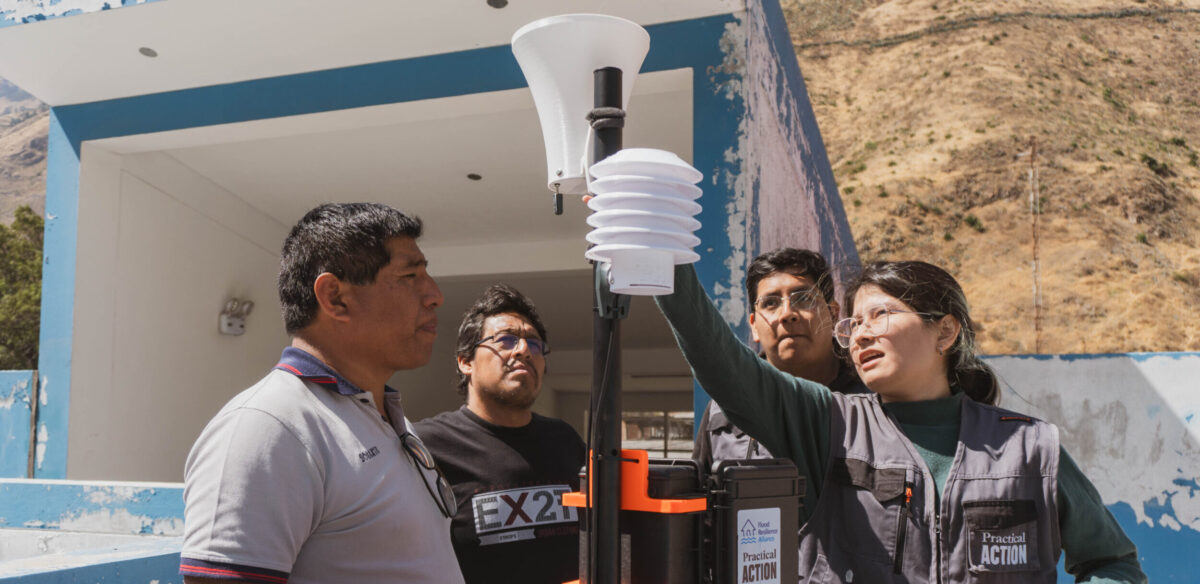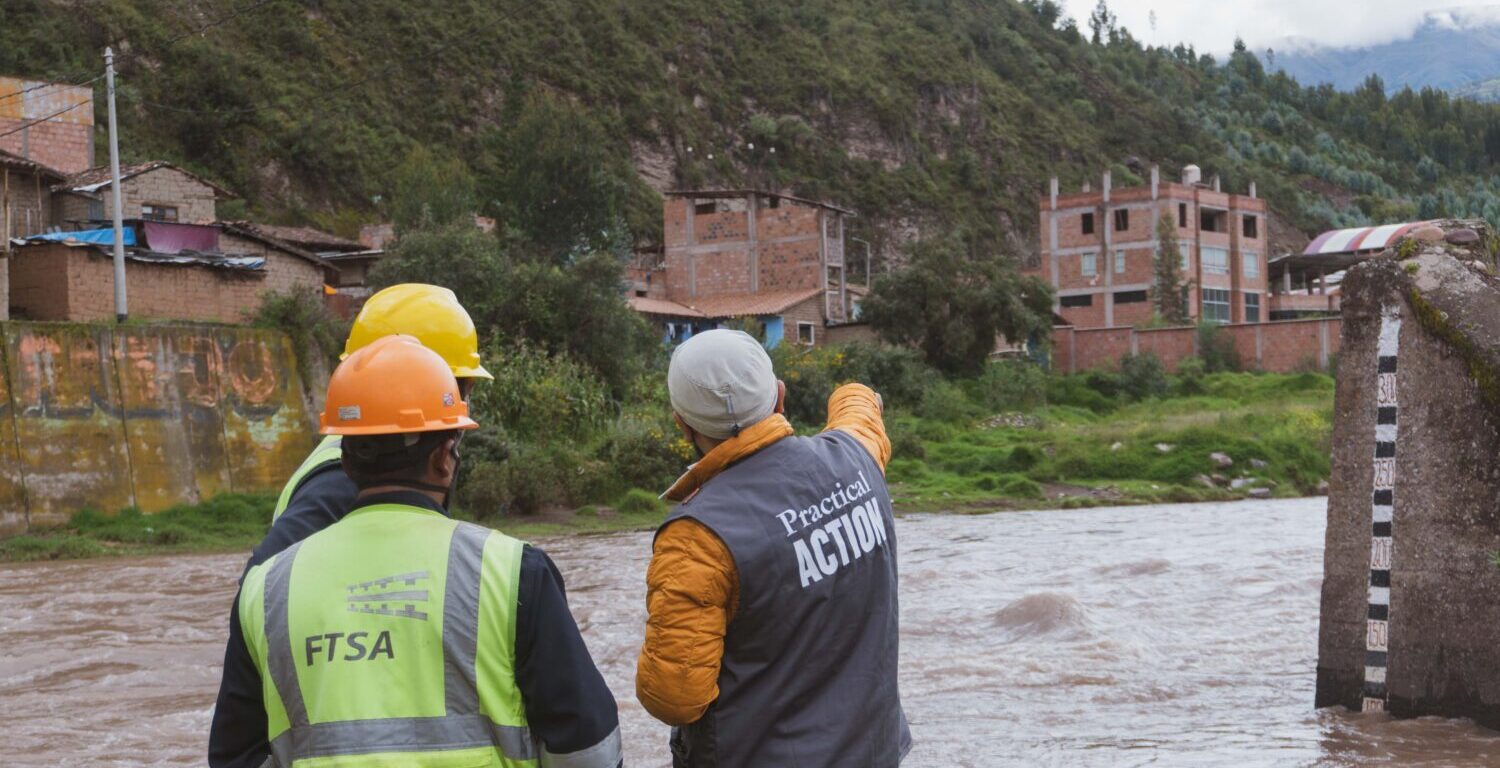
Our team in Latin America pushes forward a regional commitment to anticipate climate disasters, strengthen national systems and protect the most vulnerable communities
16 April 2025
The Andean region, located in South America, faces recurrent climate disasters that affect more than half a million people every year. Despite advances in early warning systems, significant challenges remain to take early action and respond effectively to these events.
To reduce this gap, the official launch of the Anticipatory Action Initiative, a regional proposal aimed at strengthening capacities for preparedness and anticipatory action against climate hazards in Peru, Ecuador and Bolivia, took place on 15 April. This initiative promotes the advancement of tools linked to anticipatory action through the integration of early warnings, climate forecasts and available financial resources. It also fosters knowledge sharing in the region through a Community of Practice that also involves Colombia and Venezuela.
The initiative is led by Practical Action, with the technical and financial support of the Swiss Agency for Development and Cooperation – SDC through it’s Lima Regional Hub, the co-financing of the Z Zurich Foundation, through the Zurich Alliance for Climate Resilience, and the technical advice of the IFRC Climate Centre. This effort is aligned with the United Nations global strategy ‘Early Warnings for All’, contributing to transform disaster risk management in the Andean countries.
A multi-sectoral and collaborative approach
The launch event gathered around 90 professionals from national disaster risk management systems, technical-scientific agencies and governmental entities from Peru, Ecuador, Bolivia and the region.
The presentations at the start of the event were key to reaffirming the strategic vision of the institutions behind this approach at the global and regional level.

‘While Early Warning Systems have proven to have a positive impact and value for money, many at-risk communities still do not receive the necessary coverage. This is also one of the focus areas of the Zurich Climate Resilience Alliance in Latin American countries, together with the SDC’s Anticipatory Action Initiative. It is a complementary collaboration for which we are very grateful and excited to see implemented.’
– Michael Szönyi, Director of the Zurich Climate Resilience Alliance.
‘Early warning systems (EWS) are a key instrument to protect lives and livelihoods. EWS combined with Anticipatory Actions, meaning pre-defined activities and budget, allow municipalities and communities to act before the peak of an emergency to significantly reduce its impacts.
Creating multi-hazard prepared communities is a priority of the Swiss Agency for Development and Cooperation as it contributes to a shift from a reactive disaster response approach to proactive and anticipatory decision making’.
– Nicole Clot, Deputy Regional Director and Regional Coordinator for Disaster Risk Management at SDC
‘In partnership with SDC, since 2021 we have been collaborating with national systems in Andean countries facing climate hazards through an evidence-based anticipatory action approach.
With a citizen science approach, we have implemented participatory monitoring networks in Bolivia and Ecuador based on the experience and lessons learned in Peru, and today we are launching the Anticipatory Action Initiative in four Andean Community countries’.
– Alicia Quezada, Practical Action Regional Director for Latin America
The event featured a series of technical presentations that focused on the progress and challenges related to anticipatory action from the perspective of climate service specialists from Peru, Ecuador and Bolivia. Key information on monitoring systems, impact-based forecasts and the importance of voluntary observation networks were addressed.
In addition, representatives of the national disaster risk management systems of Peru, Ecuador and Bolivia met for a dialogue to discuss the relevance of this approach at the regional level and the challenges we jointly face for its implementation.
Anticipatory action going forward
This event marks the first milestone of a three-year initiative that seeks to integrate an anticipatory and evidence-based approach into national disaster risk management systems sustainably.
The Anticipatory Action Initiative aims to develop, test and disseminate innovative cases that integrate this approach, enabling local governments and communities to be better prepared for climate challenges.
It also seeks to improve access to data and technology by providing technical assistance to key actors to optimise the collection, analysis and use of climate and risk information, ensuring its relevance for informed decision-making at all levels.
Another key component is the strengthening of collaborative mechanisms between government institutions, meteorological services, risk management systems and communities, promoting coordinated and timely responses.
Finally, the initiative is committed to expanding knowledge on anticipatory action in the Andean region, providing opportunities for learning and exchange networks that strengthen local and regional capacities.
With this initiative, the Andean countries are moving towards more timely, efficient and people-centred risk reduction.
